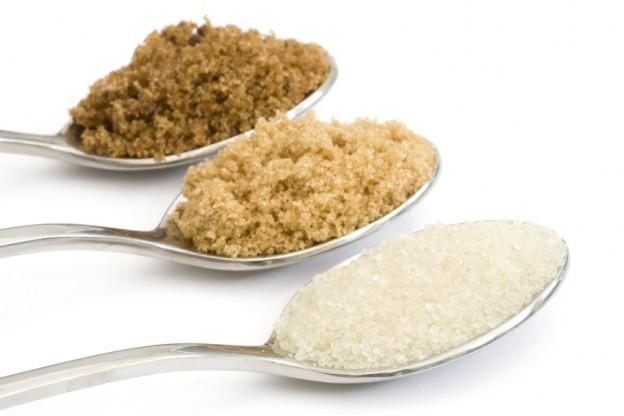Our body has the amazing ability to turn what we eat into energy. We can use it right away, or store it for the future! By Guest Writer , nutrition coach, personal trainer. What doesn’t get used as energy get stored, typically as fat. Healthy Solution: Use non-glycemic natural sweeteners! Sugar has a profound impact on your diet and waistline, whether it’s in white packets, in boxes of cereal, or even as fresh fruit. There are a couple of ways this happens:
1) Out-of-whack Blood Sugar Levels
When you eat foods containing sugar, your pancreas has to release a certain amount of insulin to compensate for it. If you don’t eat too much, and you don’t have any metabolic concerns (think diabetes), you probably won’t notice anything. However, if you eat too much sugar…from a can of soda, a sugary yogurt, a cup of raisins or a morning pastry, your pancreas has to release enough insulin to compensate for this insurgence of sweet stuff. After insulin is released, your blood sugar levels come crashing back down…lower than where it was to before you even started eating. This can make you feel tired and shortly after that, pretty hungry. Why? Your blood sugar levels are low and your body is telling you to eat again! Many people make the mistake of seeking out foods that contain sugar to help get them back to feeling good again. It’s a vicious cycle.
This whole reaction is responsible for post-lunch fatigue and the frustrating hunger you feel two hours after eating what you think is a filling breakfast. Your body, on the other hand, takes this opportunity to store fat! This roller coaster of unsteady blood sugar levels puts your body in a bit of a panic. Even if you don’t perceive this as stress, your body does. When your body perceives this fight-or-flight phenomena, it stores fat.
What can you do to stop this from happening?
First of all, don’t eat foods containing copious amounts of sugar – especially in the morning. Once you set the wheels in motion in the AM hours, it’s really hard to control for the rest of the day. This includes sugary yogurts, sodas, juices, pastries, etc. Read your labels and choose foods wisely. Make sure you eat plenty of healthy fats, like coconut oil, avocado, nuts, seeds, olive oil, and for some, butter, along with clean sources of protein. Every body type needs different amounts of protein, carbs and fat, but we all need some. Don’t skimp on this.
2) Over-fueled Gas Tank
Think of your liver as your body’s gas tank. When you fuel the tank to the top, your body gets the energy it needs. Ideally, you’re fueling it with plenty of healthy fat, protein and carbohydrate. If your gas tank spills over, particularly after eating too much fructose, you’ll store fat.
Fructose is a sugar found in fruit, and a big part of the omnipresent sweetener, high fructose corn syrup. Fructose can’t be metabolized like other forms of sugar. When we eat fructose, our liver is completely responsible for breaking it down. If this organ is already busy breaking down other nutrients, it pushes it off and delays the breakdown storing it as fat. Bottom line, read your labels and make sure you’re going easy on foods containing high fructose corn syrup. High fructose corn syrup plays a huge role in obesity in the United States, and quickly, around the world. You can avoid this sweetener by eating foods that are less processed.
So what about fruit? If you’re a big fruit eater and have a problem controlling belly fat, you might want to consider eating less of it. Fruit is a great food and contains plenty of minerals and nutrients our body needs. However, we don’t need that much of it. Eating too much fruit, especially after we’ve eaten a big meal, or when we’re just looking for something to snack on because we’re bored, could lead to weight gain. I’m not suggesting that you avoid fruit altogether, but I am suggesting that you evaluate how much fruit you eat.
Traci D Mitchell is a nationally-recognized Chicago-based nutrition coach and personal trainer. She’s available for corporate speaking events and private coaching.





No Replies to "2 Reasons Why Sugars Make You Fat"